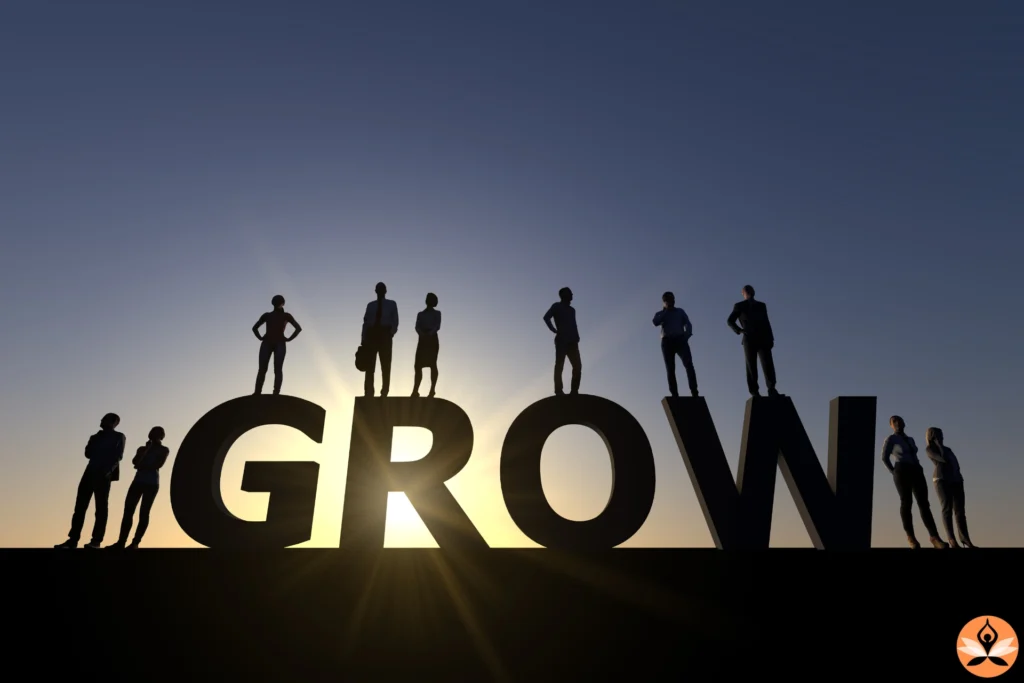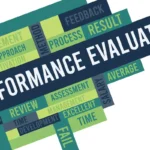Personal growth is the process of improving self-awareness, developing talents, and building emotional intelligence, ultimately driving success in both personal and professional life. One crucial aspect of personal growth is its ability to foster a success mindset—an attitude that embraces learning, persistence, and adaptability. This article delves into how personal growth enhances a success mindset and how individuals can leverage personal development to achieve greater success in all areas of life.
As more people are prioritizing self-improvement, the connection between personal growth and achieving success is becoming clearer. The article will provide an in-depth understanding of personal growth, discuss its relationship with mindset shifts, and showcase practical steps for integrating personal growth into daily routines.
1. Understanding Personal Growth
What is Personal Growth?
Personal growth refers to the continuous process of self-improvement in all aspects of life, including intellectual, emotional, and social dimensions. It involves recognizing one’s strengths and weaknesses and actively working toward becoming the best version of oneself. Through education, experience, and conscious effort, personal growth equips individuals with the tools necessary to navigate life’s challenges and seize opportunities for success.
Key Areas of Personal Growth
Personal growth spans multiple dimensions, including:
- Emotional Growth: Managing emotions effectively and developing resilience.
- Intellectual Growth: Acquiring knowledge, learning new skills, and enhancing cognitive abilities.
- Physical Growth: Prioritizing physical health through exercise, nutrition, and self-care.
- Social Growth: Improving interpersonal relationships, communication, and collaboration skills.
Each of these areas contributes to a more well-rounded individual who is equipped to handle both personal and professional challenges.
The Journey of Self-Improvement
The journey of self-improvement is lifelong and requires consistency. It’s about becoming self-aware and making continuous efforts to better oneself. Tools such as journaling, mindfulness, and self-reflection can assist in tracking personal growth and maintaining progress.
1. What is a Success Mindset?
Defining Success Mindset
A success mindset is a belief system that emphasizes growth, learning, and perseverance. It’s the mental framework that empowers individuals to view challenges as opportunities and maintain focus on long-term goals. People with a success mindset are characterized by optimism, resilience, and a drive to constantly improve.
Characteristics of a Success-Oriented Person
People with a success mindset often share several key characteristics:
- Goal-Oriented: They set clear, achievable goals and work consistently toward them.
- Resilient: They view failures as opportunities to learn and grow, rather than reasons to give up.
- Adaptable: They can pivot and change their strategies when necessary.
- Optimistic: They believe in their ability to achieve their goals, even in the face of obstacles.
Common Misconceptions about Success Mindset
One common misconception is that a success mindset is synonymous with constant positivity. In reality, it involves recognizing challenges and setbacks, but also believing in the capacity to overcome them. Another misconception is that success is solely about financial or career achievements; however, a true success mindset encompasses personal growth, happiness, and fulfillment in all areas of life.

3. The Connection Between Personal Growth and Success Mindset
How Personal Growth Fuels Mindset Shifts
As individuals pursue personal growth, their mindset naturally shifts from a fixed mindset to a growth mindset. The concept of a growth mindset, popularized by psychologist Carol Dweck, is centered around the belief that abilities and intelligence can be developed through dedication and hard work. Personal growth instills this belief by fostering resilience, adaptability, and self-awareness.
The Role of Self-Awareness in Success
Self-awareness is crucial to personal and professional success. By understanding one’s strengths and weaknesses, individuals can make better decisions, seek growth in the right areas, and avoid repeating mistakes. Leaders like Bill Gates have attributed much of their success to continuous self-assessment and growth.
Continuous Learning as a Tool for Success
A commitment to continuous learning keeps individuals sharp, adaptable, and prepared for the ever-changing challenges of the modern world. Industries evolve, technologies change, and market demands shift. A success-oriented mindset recognizes that learning never stops and that ongoing education—whether formal or self-directed—is essential to staying ahead.
4. Emotional Intelligence and Personal Growth
Understanding Emotional Intelligence
Emotional intelligence (EI) refers to the ability to perceive, understand, and manage emotions—both your own and those of others. High EI leads to better decision-making, stronger relationships, and more effective leadership. Daniel Goleman, a psychologist who popularized the concept, identified five components of EI: self-awareness, self-regulation, motivation, empathy, and social skills.
The Impact of Emotional Regulation on Success
Effective emotional regulation helps individuals maintain focus and make rational decisions even in stressful situations. Leaders with high emotional intelligence are often more effective because they can keep their composure, inspire trust, and manage conflicts constructively.
Improving Interpersonal Skills Through Personal Growth
Personal growth strengthens interpersonal skills by enhancing emotional intelligence, empathy, and communication abilities. Leaders like Satya Nadella, CEO of Microsoft, have openly discussed how their focus on emotional intelligence has transformed their leadership style and made them more effective in building high-performing teams.
5. Resilience and Growth
How Personal Growth Builds Resilience
Resilience is the ability to recover from adversity, and personal growth is instrumental in developing this trait. Through challenges, individuals build mental toughness, learning to adapt, overcome obstacles, and keep moving forward. The more an individual grows, the better equipped they become to handle future setbacks.
Handling Failure and Setbacks
Failure is a natural part of life, and personal growth teaches you how to handle it constructively. Entrepreneurs like Elon Musk have faced numerous failures, yet they used personal growth to learn from their mistakes and pivot their businesses toward eventual success.
Case Studies of Resilient Leaders
One well-known example of resilience is Howard Schultz, the former CEO of Starbucks. Schultz grew up in poverty and faced several professional setbacks before transforming Starbucks into a global brand. His personal growth, emotional intelligence, and resilience were key to his success.
6. Goal Setting and Personal Growth
The Importance of Setting Goals
Setting clear and attainable goals is a vital part of personal growth. Without well-defined goals, personal development lacks direction and purpose. Goal-setting provides individuals with a roadmap to measure progress and stay motivated.
SMART Goals and Personal Growth
The SMART framework (Specific, Measurable, Achievable, Relevant, and Time-bound) is one of the most effective tools for goal setting. By ensuring that goals are specific and measurable, individuals can track their progress and celebrate small victories along the way, fostering a sense of achievement and continuous growth.
Staying Committed to Personal Development Goals
Consistency is key to personal growth. Setting regular check-ins to evaluate progress, adjusting goals when necessary, and holding yourself accountable ensures that personal development remains a priority. This commitment to growth is often what distinguishes highly successful individuals from others.
7. The Importance of Adaptability
How Personal Growth Fosters Adaptability
Adaptability is essential in today’s fast-paced world. As the global economy and technology evolve, the ability to pivot and adapt to new circumstances becomes a critical skill. Personal growth enhances adaptability by encouraging continuous learning and resilience.
Overcoming Challenges Through a Growth Mindset
A growth mindset helps individuals see challenges as opportunities for growth. Whether in the workplace, personal life, or during times of uncertainty, individuals who approach problems with a mindset geared toward learning are more likely to find innovative solutions.
8. Overcoming Limiting Beliefs
Identifying Limiting Beliefs
Limiting beliefs are negative thought patterns that hinder personal and professional success. These beliefs often stem from past experiences, fear of failure, or societal pressures. Identifying and challenging these beliefs is the first step toward overcoming them.
Transforming Negative Thought Patterns
Personal growth involves replacing limiting beliefs with positive, empowering ones. Cognitive-behavioral techniques such as reframing can help individuals recognize negative thoughts and transform them into positive affirmations. This process builds self-confidence and promotes a success-oriented mindset.
Real-Life Examples of Overcoming Limiting Beliefs
Entrepreneurs like Richard Branson and Oprah Winfrey have faced numerous limiting beliefs throughout their careers. By focusing on personal growth, they were able to overcome self-doubt and create lasting legacies.
9. The Role of Habits in Personal Growth
How Habits Shape Your Mindset
Your habits define your actions, and ultimately, your success. Positive habits like daily exercise, reading, and meditation can transform your mindset over time, making it easier to adopt a success-oriented approach.
Developing New Habits for Long-Term Growth
Building new habits takes time and consistency. Start small by setting manageable goals, and gradually work toward incorporating habits that align with your personal development goals. Using tools like habit trackers and setting reminders can help ensure consistency.
Breaking Bad Habits That Hinder Success
Bad habits, such as procrastination or negative self-talk, can impede personal growth and success. By identifying these habits and actively working to replace them with more constructive behaviors, you can clear the path to achieving your goals.
10. The Impact of Personal Growth on Professional Success
How Personal Growth Accelerates Career Advancement
Personal growth leads to the development of key skills that accelerate career advancement. These include leadership abilities, communication skills, and emotional intelligence. Investing in your growth not only makes you a more valuable employee but also prepares you for future leadership roles.
The Importance of Leadership Skills
Leadership is one of the most critical outcomes of personal growth. Good leaders are constantly learning, improving their emotional intelligence, and adapting to the needs of their teams. Through personal growth, leaders like Jeff Bezos and Sheryl Sandberg have honed their abilities to inspire, innovate, and drive success within their organizations.
Personal Growth and Entrepreneurship
Entrepreneurs, in particular, benefit from personal growth. The journey of entrepreneurship is fraught with challenges, and personal development helps entrepreneurs build the resilience and skills necessary to navigate uncertainty, make strategic decisions, and motivate their teams. Entrepreneurs like Daymond John and Barbara Corcoran credit much of their success to their dedication to personal growth.
11. Personal Growth and Work-Life Balance
Maintaining Balance Through Personal Growth
Work-life balance is essential for overall well-being. Personal growth helps individuals develop time management skills, set healthy boundaries, and prioritize self-care, all of which contribute to a more balanced life. Achieving balance is not just about managing time but also about managing energy and focus.
Time Management Strategies for Success
Effective time management strategies like prioritizing tasks, using the Pomodoro Technique, and eliminating distractions enable individuals to maintain a healthy work-life balance while still achieving their goals. Incorporating these strategies into your daily routine can lead to improved productivity and reduced stress.
12. Personal Growth through Lifelong Learning
The Importance of Continuous Education
Lifelong learning is a cornerstone of personal growth. Whether through formal education, online courses, or self-study, continuous learning keeps individuals competitive and open to new ideas. Leaders like Warren Buffett emphasize the importance of reading and learning as a daily practice to stay ahead.
Learning New Skills for Career Growth
In today’s job market, continuous skill development is critical for career advancement. Personal growth through learning helps individuals acquire new technical and soft skills that enhance their employability and open doors to new opportunities.
13. Practical Steps to Foster Personal Growth
Self-Reflection Practices
Self-reflection is one of the most powerful tools for personal growth. Set aside time each day or week to evaluate your progress, identify areas for improvement, and adjust your goals as necessary. Practices like journaling and meditation can help facilitate this process.
Finding a Mentor
A mentor can provide guidance, support, and valuable insights during your personal growth journey. Seek out mentors who have achieved what you aspire to, and learn from their experiences.
Attending Workshops and Seminars
Workshops, seminars, and conferences offer opportunities to gain new knowledge, network with like-minded individuals, and receive guidance from experts in your field. Regularly attending these events can accelerate personal growth and inspire new ideas.
14. Expert Insights on Personal Growth and Success
Quotes from Successful Leaders
Tony Robbins once said, “Setting goals is the first step in turning the invisible into the visible.” This highlights the importance of goal-setting in personal growth. Similarly, leadership expert John C. Maxwell states, “You cannot overestimate the unimportance of practically everything,” emphasizing the need to focus on what truly matters for growth.
Case Studies of Personal Growth Journeys
Steve Jobs is a prime example of someone who used personal growth to fuel his success. After being ousted from Apple, Jobs took time to grow both personally and professionally. His personal development journey led him to return to Apple with a new vision, ultimately transforming the company into one of the most successful brands in the world.
15. Future Outlook of Personal Growth and Success
The Evolving Role of Personal Growth in a Fast-Changing World
As industries continue to evolve, personal growth will play an even more critical role in shaping success. The ability to adapt, learn, and innovate will become key drivers of success in the modern world.
Emerging Trends in Personal Development
New trends such as mindfulness, meditation, and mindset coaching are rapidly growing in popularity as more people prioritize mental well-being and personal growth. Additionally, digital platforms offering self-development courses and resources are making personal growth more accessible than ever.
The Growing Importance of Mindset Coaching
Mindset coaching is becoming an essential tool for personal and professional development. Coaches help individuals identify limiting beliefs, set goals, and build habits that support long-term growth. As the demand for personal development grows, mindset coaching is expected to become even more integral to success.
16.Frequently Asked Questions (FAQs)
1. What is the most important aspect of personal growth?
The most important aspect of personal growth is self-awareness. Being aware of your strengths, weaknesses, and areas for improvement helps you set meaningful goals, make better decisions, and continuously work toward becoming a better version of yourself. Self-awareness serves as the foundation upon which all other personal growth practices are built.
2. How does personal growth contribute to professional success?
Personal growth equips individuals with essential skills such as emotional intelligence, resilience, and adaptability, which are crucial for professional success. By constantly learning and improving, you become better prepared to handle challenges, lead teams effectively, and seize opportunities in your career. Personal growth fosters leadership abilities and accelerates career advancement.
3. How can I develop a success mindset through personal growth?
To develop a success mindset through personal growth, focus on adopting a growth mindset, setting clear goals, and continuously learning from both successes and failures. Emotional intelligence, self-awareness, and resilience are also key components of a success mindset. Regular reflection, goal-setting, and seeking feedback from mentors or peers can help solidify this mindset over time.
4. What are some practical ways to overcome limiting beliefs?
To overcome limiting beliefs, start by identifying the specific thoughts or beliefs holding you back. Practice reframing these beliefs by replacing negative thoughts with positive affirmations. Cognitive-behavioral techniques, journaling, and working with a coach or therapist can help you recognize and transform limiting beliefs into empowering ones.
5. Why is adaptability crucial in personal growth?
Adaptability is crucial because it allows you to handle change and uncertainty with a positive attitude. In today’s fast-paced world, industries, technologies, and circumstances change rapidly. Individuals who are adaptable are more likely to thrive in these environments, as they can pivot quickly, learn new skills, and turn challenges into opportunities for growth.
17. Conclusion
Personal growth and the development of a success mindset are intertwined, each enhancing the other. By focusing on self-improvement, emotional intelligence, and lifelong learning, individuals can cultivate a mindset that drives personal and professional success. The journey of personal growth is ongoing, but with the right strategies, resilience, and commitment, it leads to fulfilling and transformative success.










